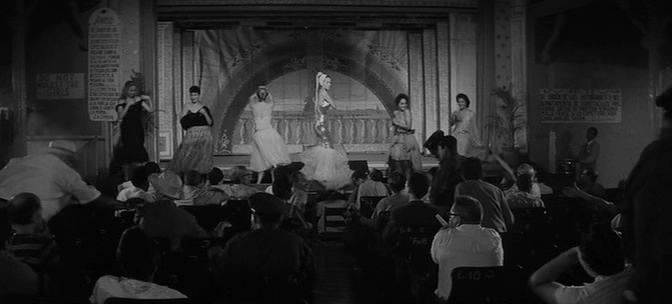Jamaican Walter Adolphe Roberts (1888-1962), the author of the book on Havana discussed in a previous article, unfoundedly has also been called a racist for his portrayal of Chinatown. His approach to the place, on the contrary, is invaluable to be able to capture the marginality that characterized it in the 1950s, at times with a harshness that is nothing but an expression of the purest realism, despite the euphemisms that the author uses or is forced to use.
Roberts scares away from the place potential visitors, far from encouraging them to enter. And he does so from an ethical stance, and even personal security, very well defined and consistent with other testimonies of the time.
He writes:
Like most of the Chinese neighborhoods of the New World, Havana’s has its morbidly secret side, its dens where opium is smoked and other vices are practiced. The visitor would do well to stay away from them. Anyway, few guides would risk showing him the way, and he would never find it by himself. If you can’t satisfy yourself only if you’ve taken a glimpse of the degradation, you don’t have to go any farther than some of the bars open in Zanja, near San Nicolás, and go down the side alleys. You will see the marijuana addicts and the drunks. Generally speaking, Cubans are not inclined to alcoholism, but the scoundrels who drink crude liquor at five centavos a glass in Chinatown, are simply using the easiest and cheapest means to stun their nerves.
Of course Roberts is, along with the Graham Greene of Our Man in Havana, one of the most important sources to enter the Shanghai Theater. Thanks to his testimony we know with a certain wealth of details what happened on stage:
A theater of this kind has existed for a long time on the edge of Chinatown. I will not say its name, but the visitor will have no difficulty in identifying it, since it is announced discreetly and each bartender and each taxi driver knows it. A typical program begins with a moderately long sketch that an outsider will probably find boring, relying as it does on dialect and local allusions.

This is a cultured traveler who knew French and Spanish, as well as English, obviously; but in spite of that, what happened to other foreigners also happened to him: naturally, they didn’t understand the Cuban vernacular language, as happened to the men of the U.S. magazine Cabaret when they went to one of those shows. But, beyond any limit, they did understand the obscene gestures.
Roberts continues describing what he sees in the scene: “Next come the short pieces, some of them dramatized jokes, some of song and dance, and others a kind of risqué pantomime,” the latter, of course, an expression that covers the territory of the sexual, the raison d’être of the former Chinese theater.
And the most popular part of the show starts, judging by the reaction of the audience:
You hear an attractive song on the odd occasion, or you see a good dance number. In general, these parts of entertainment are raw, with an emphasis on noise and gymnastics. The girl who makes signs from the stage can be shameless, but often they have originality and, at least, they don’t speak; they are the most popular attraction.
Then he narrates the spectacle of the “policewomen,” but deliberately at a distance, marked by the “mocking smile” that it provokes in him:
The scene took place at night, in a deserted square of the city, indicated by backdrops painted with street lamps and the silhouettes of the houses. A completely naked woman, except for her hat and shoes, and a handbag she swings, walked carelessly around the stage. The hint of her call was unmistakable. She pulled a mirror out of her handbag and started putting on makeup under a lamp. She was then joined by half a dozen streetwalking sisters, all in a similar state of nudity. They spoke through grimaces and shrugs, which showed that business was not going well.
With which he clarifies the problem of the corporal quality of the extras on the stage, in particular of the main one:
Then a robust female, also naked, except for her police cap, the leather shoes and the club, made her appearance. The newcomer frowned at the harlots, threatened them with the billy club, put them in line and started searching them to see if they had hidden weapons. The comedy of this last operation stretched out. I don’t have to say more. Upset about not having discovered anything, the “policeman” shooed her victims to the wings [of the stage] and she herself retreated with great strides, while the orchestra played a paso doble.
The Shanghai Theater was not the only place that featured such shows, only the most visible and known point. In his vision of the city, Roberts omitted other black holes: he doesn’t say a word about the pornographic films that were shown there, or about other cinemas that screened these films, like the Capitolio and the Niza, close to that Paseo del Prado that the writer knew so well, and other cheaper ones, in Old Havana, where there were at least two: the Bélgica, on Monserrate Street―which according to Guillermo Cabrera Infante’s La Habana para un infante difunto had “an infamous reputation, with the worst audience of all of Havana’s nefarious movie theaters”―, and the Montecarlo, the latter with “depravity on the screen” and “the depraved in the audience.”
Maybe for Roberts those audiences, and what they did there, were just too much to take in.
TN: Quotes by Roberts were retranslated from the Spanish.










